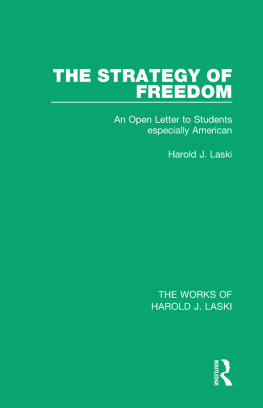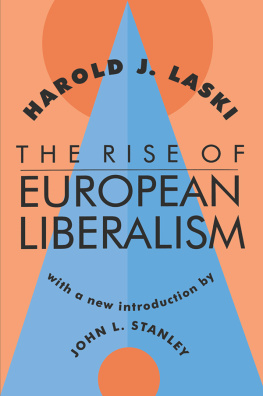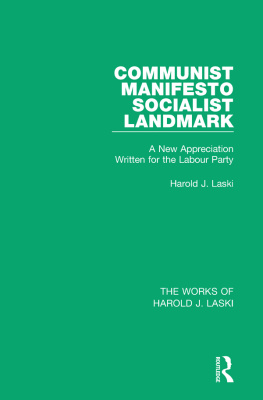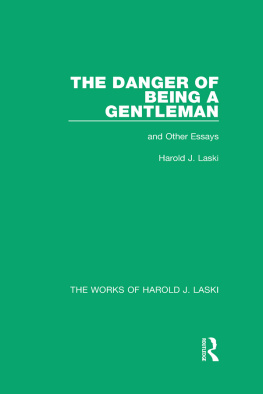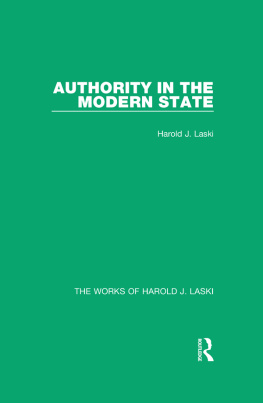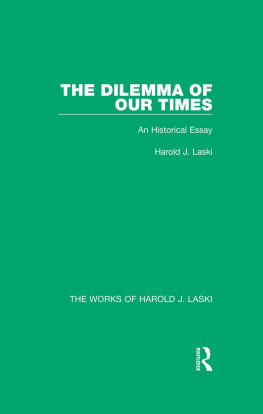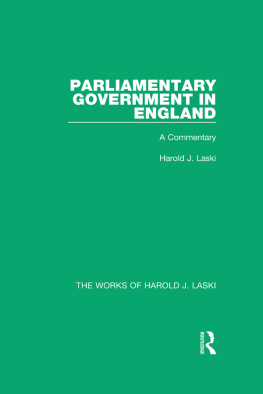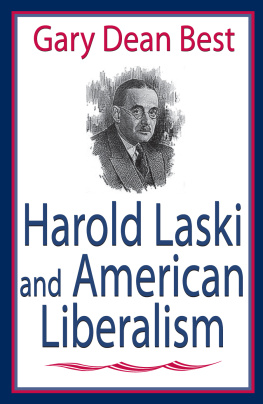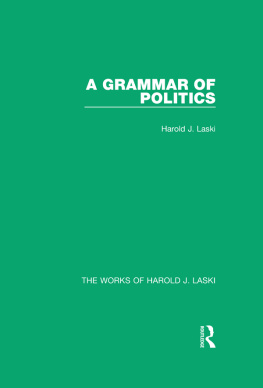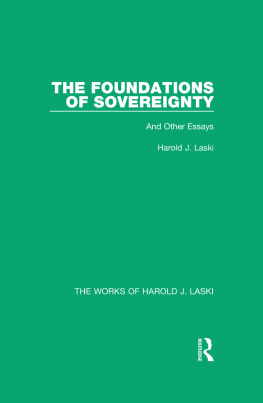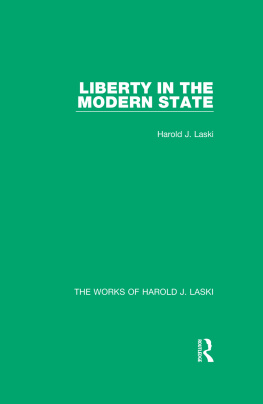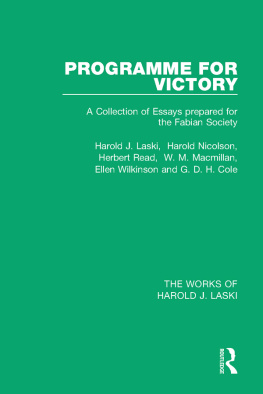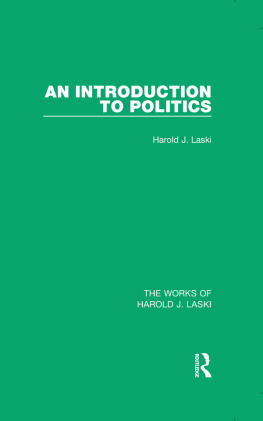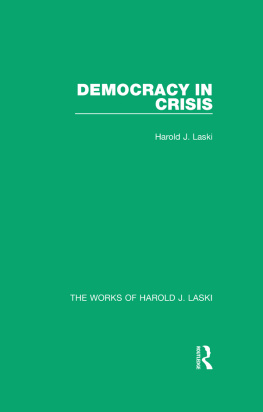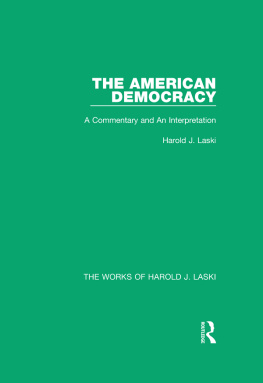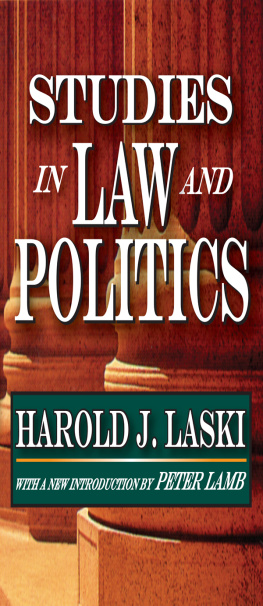First published in 1942 by George Allen & Unwin Ltd
This edition first published in 2015
by Routledge
2 Park Square, Milton Park, Abingdon, Oxon, OX14 4RN
and by Routledge
711 Third Avenue, New York, NY 10017
Routledge is an imprint of the Taylor & Francis Group, an informa business
1942 George Allen & Unwin Ltd
All rights reserved. No part of this book may be reprinted or reproduced or utilised in any form or by any electronic, mechanical, or other means, now known or hereafter invented, including photocopying and recording, or in any information storage or retrieval system, without permission in writing from the publishers.
Trademark notice: Product or corporate names may be trademarks or registered trademarks, and are used only for identification and explanation without intent to infringe.
British Library Cataloguing in Publication Data
A catalogue record for this book is available from the British Library
ISBN: 978-1-138-81912-2 (Set)
eISBN: 978-1-315-74273-1 (Set)
ISBN: 978-1-138-82219-1 (Volume 13)
eISBN: 978-1-315-74257-1 (Volume 13)
Publishers Note
The publisher has gone to great lengths to ensure the quality of this reprint but points out that some imperfections in the original copies may be apparent.
Disclaimer
The publisher has made every effort to trace copyright holders and would welcome correspondence from those they have been unable to trace.
One
ALL over the world, wherever there are free men and women, the desire for the defeat of Hitlerism and its allies is passionate and profound. Ordinary people who, in the normal course of things, hate war have recognised that if, in this conflict, Great Britain were to be defeated, something like a dark age would settle down upon mankind. What, they are convinced, is in hazard are certain fundamental principles of civilisationthe rule of law against the power of arbitrary discretion, the right to freedom of the mind against the power of outlaws to control the direction of thought, the co-operation of nations by way of free association instead of by coercive subordination. Each time a stand has been taken against the relentless tyranny of the dictators, whether it has been Matteoti in Rome or Dimitroff in Berlin, whether it has been Britain after the fall of France or Greece and Jugoslavia insisting on battle rather than upon surrender, the conscience of the whole free world has been lit by a new gleam of hope. Even in India, where an unresolved conflict between the British Government and the national leaders haunts the scene like a grim shadow, there is none of those leaders who does not admit that the defeat of Britain would end, for a long period to come, the hope of Indian freedom. For they know that a German victory in the West may spell Japanese domination in the East; and the history of China in the last eight years has revealed something of the price men have to pay for Japanese domination.
An Englishman is bound to note with pride the growth in the United States of sympathy with, and aid for, the cause for which our people are fighting. The call for that sympathy and aid has transcended all boundaries of class or creed or party; it has triumphed over historical misunderstandings and surviving scepticisms as deep as any in the modern world. Those who have sought to halt its full expression have been felt to misunderstand the central principles upon which the American way of life has been built. They have been felt to deny the creative role it is the duty of an America to play which hopes to retain for herself a civilisation assured of freedom and democracy. Sometimes their opposition has been the outcome of genuine intellectual error. Sometimes, humanly enough, it has been born of a pacifist philosophy to which the maintenance of freedom by the method of war is the supreme mistake in state policy. Sometimes it is the consequence of more sinister motives, directly born of the power of the dictators to purchase support for their evil ends.
I have an association which goes back over twenty-five years with American universities. I have taught in many of them; teachers and students in many have been among the closest of my friends. In the years of my own residence in the United States, if I had to make a criticism of American students, it would have been of regret at their aloofness from the political scene about them. Save at the dramatic moment of a Presidential election, it was rare for more than a small handful of them to realise that universities are not ivory towers, remote from the main stream of social life, but watch-towers which have no meaning save as they closely guard, and carefully register, the significance of a civilisation whose trends they are bound to express.
It was, therefore, to me an exciting thing when, about the time of the Great Depression in the United States, there was an unmistakable stirring on every university campus I have visited. Groups of students, growing ever larger as the years went by, began increasingly to understand how deeply they were involved in the crisis of our civilisation, how impossible it was for them not to demand that academic life should confront its implications with courage. It was a heartening thing to see them growingly determined to penetrate to the roots of this crisis. It was exhilarating to see them not only flock to the class-rooms of those teachers prepared to analyse its meaning without deference to the vested interests which feared the results of such analysis, but, even more, quick to defend those teachers when the vested interests sought their penalisation. Above all, between 1933 and 1939, the knowledge that the student body of American universities was wholeheartedly antagonistic to the philosophy of Fascism, whether in its German or in its Italian form, was to me one of the strongest proofs that none of the sporadic manifestations of that doctrine in America had taken deep root in the mental climate of the United States.
I felt that confidence most securely in the winter and spring after Munich, when I was on leave of absence from my own university in the United States. I travelled across the continent. Whether in Columbia or Harvard in the East, whether in Indiana or Illinois in the Middle West, whether in Washington or California on the Pacific coast, the general atmosphere among the students was broadly identical. It was felt that Munich was a disaster to freedom and democracy. It was felt that Britain had dishonoured itself in being an accomplice in the annihilation of Czecho-Slovakia. It was felt that it was the duty of any nation which claimed to express the common interests of civilisation to take a determined stand against the aggressive tyranny of Hitler and Mussolini. Especially was this felt with passion by students of Left opinions. They emphasised, everywhere, the difference between the British attitude of appeasement to the Fascist dictators, and the Soviet insistence on the need of a firm stand against them. They askedI felt that they were entitled to askwhether something had gone wrong with the British people that it did not insist to the Chamberlain Government upon the plain fact that each dose of appeasement merely stimulated the arrogance and the appetite of the Dictators. I found that, everywhere, there was sympathy with the hostility of the British Labour Party to the Chamberlain policy. Communists, in particular, urged upon me the importance of an alliance between the nations opposed to the Dictators; and it was their view that those in Britain who realised the menace of Hitlerism, like Mr. Churchill, for instance, should, despite all ultimate differences, combine their forces to make headway against the more urgent danger.

